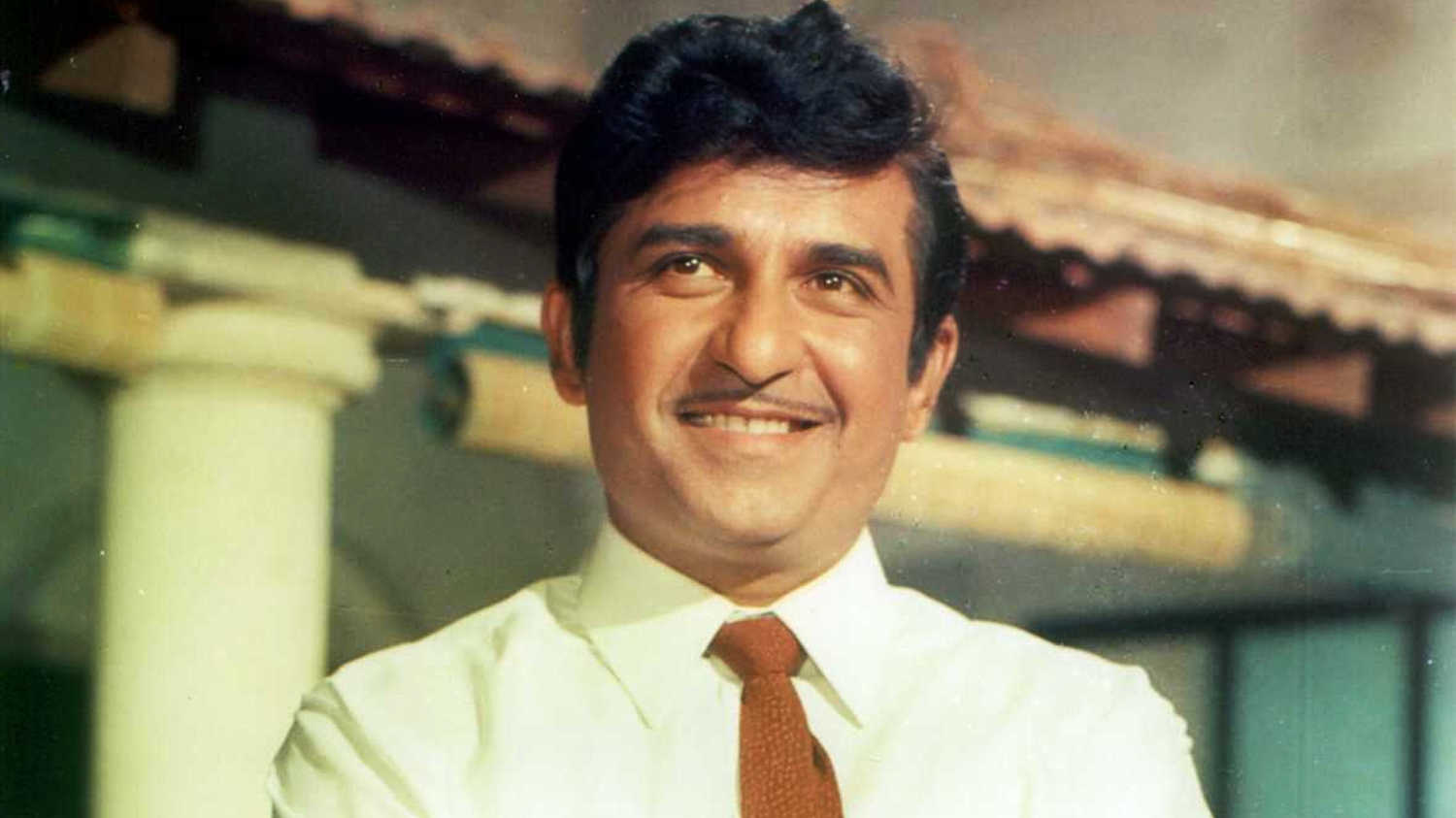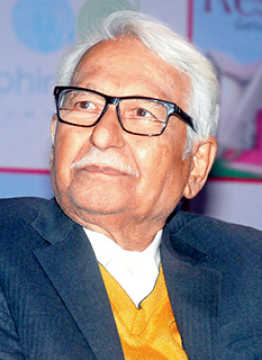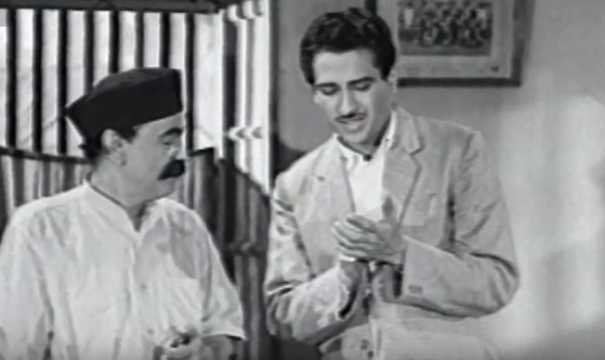The artiste wowed audiences and critics alike with his acting prowess over his seven-decade career.
Ramesh Deo (1929-2022): The accidental actor who became a legend
Mumbai - 03 Feb 2022 16:35 IST
Updated : 19:05 IST


Keyur Seta
Every film industry across the world boasts of a few artistes who are considered its pillars. As far as Marathi cinema is concerned, Ramesh Deo was indisputably one such figure. The phrase ‘end of an era’ is used loosely in today’s times. But this is exactly how one would describe the passing of Deo yesterday at the age of 93.
It's a little-known fact that the actor had his roots in Jodhpur, Rajasthan. His great grandfather and grandfather, who had built a palace in the city, were chief engineers for Chhatrapati Shahu Maharaj and were tasked with helping to build the erstwhile princely state of Kolhapur.
Ramesh Deo’s father took up law, serving as a judge in the city which by then had morphed into a major centre of film production in Maharashtra. It was here that the artiste was born on 30 January 1929.

Ramesh Deo’s entry into films was happenstance. As a college student, he was attracted to a girl who was dying to watch a film being made. Thanks to his father's clout, the young Ramesh and his friends and the girl got access to the sets of a Marathi film starring Rajan and Baby Shakuntala.
As luck would have it, the makers wanted a group of college kids for a scene. Ramesh Deo and his friends agreed; the girls took more persuasion as women appearing on celluloid was considered taboo back then. Deo played the role of a college secretary who introduces the character of Baby Shakuntala. He was paid the princely sum of Rs15.
Ramesh Deo began supplying students regularly for films and he, too, started playing bit roles. But he still hadn’t entertained the thought of taking up acting as his profession. He applied for a police inspector's job as his mother felt he would not be able to pass the bar because of his poorer academic record and went to Nashik to train for the post. In the city, through his elder brother, he met legendary filmmaker Raja Paranjpe at a horse race. At the latter’s insistence, Deo placed bets on horses for three races. All three won.
Paranjpe made a fortune and offered Deo the role of a villain in his next film Aandhala Magto Ek Dola (1956). The film was a smash hit and Deo’s performance was appreciated. With his doubts about whether he had the makings of a full-fledged actor dispelled, the young man signed on for a few more films as villain and there was no looking back thereafter.
Deo later fashioned an image as a leading man in Marathi films such as Saata Janmachi Sobti (1959), Avaghachi Sansar (1960), Vardakshina (1962), Bhagya Laxmi (1962) and Apradh (1969).

Once while returning from a shoot in Ratnagiri, 80 kilometres from Kolhapur, Deo had an epiphany at a tea shop. The actor got a jolt when he realized that the tea seller, who was working in the actor's own backyard, had failed to recognize him. That was when he decided to work in Hindi films to gain more fame. Hence, he shifted to Mumbai.
Despite being a big star in Marathi cinema, Deo had to struggle for a break in Hindi films. It finally happened with Rajshri Productions’ first film Aarti (1962). But he got noticed only after his next Hindi film, Dus Lakh (1966). He also started doing films in Chennai (then Madras), where a lot of Hindi films used to be shot. Revealing what worked in his favour in those days, Deo told the web portal Rediff.com in an interview, “They liked me because I was very punctual and did not drink.”
How Ramesh Deo and Seema landed their career-defining roles in Anand (1971): Birthday special
Deo’s most iconic work in Hindi came in Hrishikesh Mukherjee’s Anand (1971). Despite the presence of superstar Rajesh Khanna and the upcoming Amitabh Bachchan, Ramesh Deo’s character of a doctor garnered much attention. Some of his other notable performances in Hindi came in films such as Khilona (1970), Mere Apne (1971), Raampur Ka Lakshman (1972), Aap Ki Kasam (1974), Zameer (1975), Dream Girl (1977) and Patita (1980).

One of the most significant aspects of Ramesh Deo’s life was his love story with fellow artiste Seema and their subsequent marriage. Deo was a part of Seema’s first film as leading lady — Raja Paranjpe’s Jagachya Pathivar (1960). The two had met for the first time on a local train in Mumbai.
Sharing the incident in an interview with the Indian Railways portal, Deo had said, “I boarded a running train from Grant Road. When I entered the compartment, I smelt the lovely fragrance of mogra [Arabian jasmine]. I saw a beautiful lady with a string of mogra in her hair. I sat in front of her because of her fragrance. I didn’t look at her face, but she recognized me as I had worked in two or three movies as a villain. She whispered into her mother's ear that I had worked as a villain in movies. Her mother admonished me, saying, ‘Why do you sit in front of us when the entire compartment is empty?’ Earlier, trains weren’t too crowded. I replied that I could sit anywhere. This fight went on for five years. It resulted in love and finally I got married to that same lady. Her name is Seema.”
Born Nalini Saraf, Seema starred with Ramesh Deo in quite a few films. Some of these were Vardakshina, Molkrin (1963), Dus Lakh, Saraswatichandra (1968), Anand, Koshish (1972) and Dream Girl.
The last time the couple worked together on screen was in the Marathi movie Jetaa (2011). Interestingly, despite being a senior citizen, Ramesh Deo’s character finishes off the villains one after the other in unique fashion to avenge the death of his son. The film was directed by the artiste's son Ajinkya Deo, who is primarily an actor, Ajinkya himself played a cop who antagonizes his father’s character in the film.
Ramesh Deo also played the role of Shiv Sena founder Bal Thackeray in the drama 2014 Raj Ka Rann (2011). The film saw Deepak Karanjikar play Uddhav Thackeray, the current chief minister of Maharashtra, while Prasad Oak played his cousin, Maharashtra Navnirman Sena founder Raj Thackeray.

Ramesh Deo acted in more than 250 films in a career spanning seven decades. While Ajinkya followed in his footsteps, his other son, Abhinay, went on to become a filmmaker.
Ramesh and Seema Deo were jointly awarded the Jeevan Gaurav Puraskar in 2014 by the Raja Paranjpe Pratishthan. The award was presented to them by another legend of Marathi cinema, Sulochana Latkar. Speaking at the event, Ramesh Deo credited his chance meeting with Paranjpe for his stature in the industry.
“It is because of him that Ramesh Deo is sitting here today," he said. "If I hadn’t had that chance meeting with Rajabhau, I don’t think people would have known that there was someone named Ramesh Deo in this world.”









